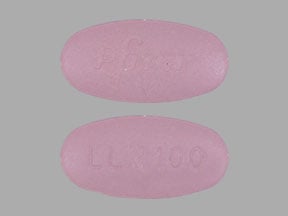
Lorbrena Coupons & Savings Card – Discount Prices from $23152.62
My prescription
Edit
100MG, Lorbrena (30 Tablets)
Select pharmacy

Albertsons
$23152.62
COUPON PRICE
Walmart
$23260.69
COUPON PRICE
Walgreens
$23271.68
COUPON PRICELorbrena savings card
Show this card to your pharmacist
Albertsons
$23152.62
BIN
ID
PCN
GRP
019876
LHDFA79310
CHIPPO
LHX
Powered by
Related kinase inhibitors prescriptions
More prescriptions for lung cancer
Related kinase inhibitors prescriptions
More prescriptions for lung cancer
Price history for Lorbrena
30 Tablets, 100MG
Average retail price for Lorbrena
Average SaveHealth price for Lorbrena
Our price history data is based on aggregated prescription data collected from participating pharmacies in America. Our prescription data updates daily to reflect the latest price changes. If you notice a missing data point, it means there wasn't sufficient data available to generate a monetary value for that date.
*Retail prices are based on pharmacy claims data, and may not be accurate when we don't have enough claims.
Lorbrena dosage forms
Dosage Quantity Price from Per unit 25MG 30 Tablets $5793.78 $193.13 25MG 120 Tablets $23152.63 $192.94 100MG 30 Tablets $23152.62 $771.75
| Dosage | Quantity | Price from | Per unit |
|---|---|---|---|
| 25MG | 30 Tablets | $5793.78 | $193.13 |
| 25MG | 120 Tablets | $23152.63 | $192.94 |
| 100MG | 30 Tablets | $23152.62 | $771.75 |
What is the drug LORBRENA used for?
Lorlatinib, marketed under the brand name LORBRENA, is used for the treatment of non-small cell lung cancer (NSCLC) that is positive for anaplastic lymphoma kinase (ALK). It is typically prescribed for patients whose cancer has progressed or who cannot tolerate other ALK inhibitors.
What is the survival rate for LORBRENA?
The survival rate for patients taking LORBRENA (lorlatinib) can vary based on several factors, including the stage of the cancer, the patient's overall health, and how well the cancer responds to the treatment. LORBRENA is used to treat non-small cell lung cancer (NSCLC) that is ALK-positive. Clinical trials have shown that LORBRENA can be effective in shrinking tumors and delaying disease progression, but specific survival rates should be discussed with a healthcare provider, as they can provide information tailored to an individual's specific condition and treatment response.
Is lorlatinib a chemotherapy drug?
Lorlatinib is not classified as a traditional chemotherapy drug. It is a targeted therapy medication, specifically a tyrosine kinase inhibitor, used to treat certain types of non-small cell lung cancer (NSCLC) that have specific genetic mutations.
Does LORBRENA cause weight gain?
Lorlatinib, marketed as LORBRENA, can cause weight gain as a side effect. Patients taking this medication may experience an increase in weight, and it is important for them to monitor any changes and discuss them with their healthcare provider.
What are the side effects of the drug Lorviqua?
Lorviqua, also known as lorlatinib, may cause several side effects. Common side effects include fatigue, weight gain, peripheral neuropathy, cognitive effects, mood changes, and increased cholesterol and triglyceride levels. Other possible side effects are diarrhea, nausea, edema, and joint pain. Serious side effects can include liver problems, lung issues, and heart rhythm changes. It is important for patients to discuss any side effects with their healthcare provider.
